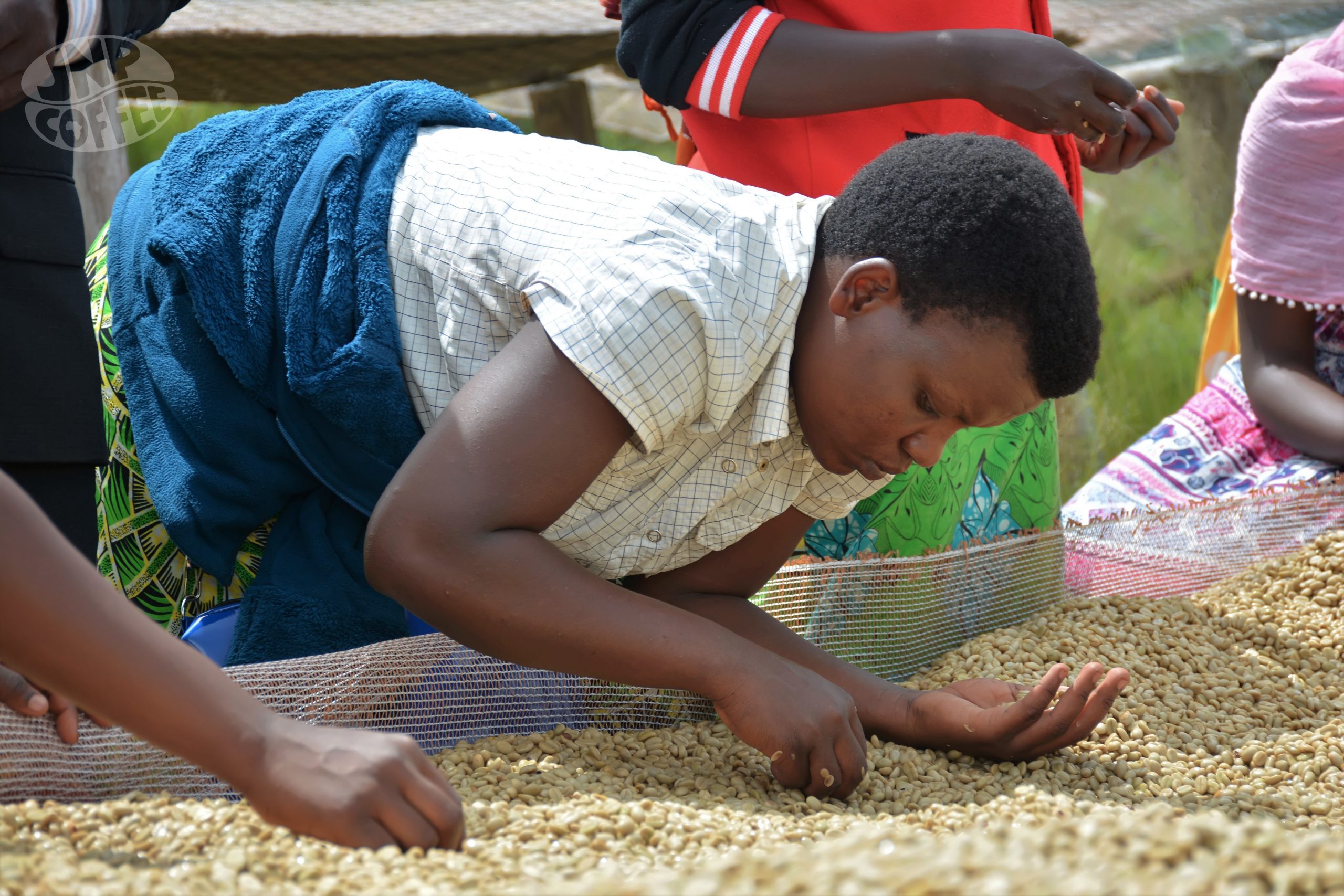Burundi Turihamwe IWCA Fully Washed 15+ GrainPro
Bags 0
Warehouses Oakland
Out of stock
About this coffee
Grower
600 women farmers organized around the Turihamwe Turashobora producer group
Altitude
1750 meters
Variety
Local heirloom cultivars
Soil
Volcanic loam
Region
Ngozi Province, Burundi
Process
Fully washed and dried on raised beds
Harvest
April - July
Certification
Conventional
Coffee Background
Jeanine Niyonzima-Aroian, the founder of JNP Coffees, is without a doubt one of the most influential individuals in Burundi coffee today.
Raised in the capital city of Bujumbura, Jeanine would go on to earn an MBA from Northwestern University’s prestigious Kellogg School, cycle through corporate America, and eventually reconnect with her birth country by founding Burundi Friends International, a not-for-profit funding educational and economic empowerment programs for rural Burundians, which is now in its 13th year. After a few years marketing Burundi coffees stateside for friends and family, Jeanine realized she had every reason to lead the business, and JNP Coffee was born.
Coffee grown in Ngozi Province has a special meaning for Jeanine, as that is where her mother grew up. Memories of her mother, leading the family’s coffee picking to cover school fees, are woven into the name for this coffee. Coffee grown in Ngozi Province has a special meaning for Jeanine—it is where her mother grew up, and where she herself spent a lot of time as a child. Memories of her mother, leading the family’s coffee picking to cover school fees, are woven into much of Jeanine’s coffee development. The wet mill that produced this coffee was built in 2018, entirely with the savings of women farmers who had long wanted a processing site of their own for quality assurance. The group of women farmers behind this coffee are a part of a larger producer group who refers to themselves as Turihamwe Turashobora in Kirundi, which translates to “Together We Can!’’. The group achieved an output of 1,000 bags of coffee this year, with plans to reach 1,200 in 2021. The wet mill and quality team is entirely women-led and works closely with JNP’s trained Q Graders on best quality practices and lot curation.
Fully washed processing for members of the Turihamwe Turashobora group is as detailed as anywhere in Burundi where the best coffees are produced. Cherry is floated for density and visible defects prior to depulping and fermentation. After fermentation is complete the wet parchment is sorted by density in concrete washing channels. Drying takes place at first under shade, and then in open air with the parchment piled into pyramids, which are flattened and re-shaped each day as a form of incremental air exposure to slowly and evenly dry the coffee and lock in the final moisture. The resulting profile is exceedingly clean, bright and delicate, with clear vanilla and citrus aromatics.
JNP Coffee is highly focused on women’s empowerment, and along with a few local women’s rights advocates, formulated the Burundi chapter of the International Women’s Coffee Alliance. The network of IWCA farmer members in Burundi is now more than 2,000, whose coffee is differentiated by membership, marketed for its traceability and impact, and which generates end-of-year premiums for all involved. In fact, the IWCA value chain has been so impactful that JNP has created additional programs to expand their farmer base and generate premiums. It seems they can’t expand fast enough. In Kayanza and Ngozi, the two provinces at the heart of the nation’s coffee production, competition for cherry can be fierce, so washing stations may pay well above the country’s minimum price to court premium harvests. JNP coffee goes a step further, returning second payments to farmers and investing in opportunities for education and community building.





